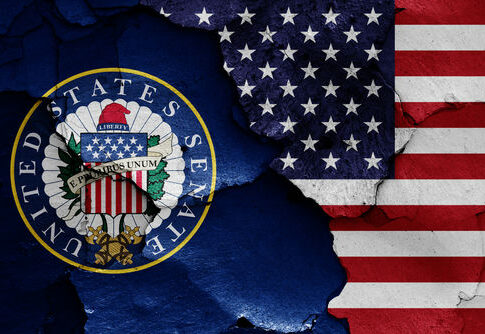A recent confirmation raises concerns over the politicization of federal law enforcement, reflecting on troubled waters in the U.S. Senate.
Confirmation of Jeanine Pirro Sparks Debate
On August 2, 2025, the U.S. Senate confirmed Jeanine Pirro as the U.S. Attorney for the District of Columbia in a closely contested 50-45 vote. Pirro, a former Fox News host and staunch supporter of President Trump, has been a polarizing figure due to her outspoken views and election denialism. Her confirmation followed heated debates in the Senate, with Democrats voicing concerns about the erosion of impartiality in federal law enforcement.
The nomination process was marked by accusations of partisanship, with Democrats accusing Republicans of fast-tracking controversial nominees. The Senate, under Republican control, was keen to confirm Trump’s nominees before the August recess, despite Democratic resistance. This move underscores the deepening partisan divides that have plagued the Senate, with concerns about the politicization of key federal roles taking center stage.
The Role of U.S. Attorney for D.C.
The U.S. Attorney for the District of Columbia is a critical position, overseeing federal prosecutions in the nation’s capital. Traditionally, such roles have been filled by career prosecutors with bipartisan support. However, Pirro’s appointment, following Matthew M. Graves’ departure, marks a significant shift in approach. This appointment comes at a time when the role is particularly sensitive due to ongoing high-profile cases, including those related to the January 6 Capitol attack.
Critics argue that Pirro’s confirmation is a dangerous precedent, as it suggests a move towards more politically motivated appointments in key law enforcement positions. Her history as a conservative media figure and outspoken Trump ally raises questions about her ability to remain impartial in politically charged cases. Concerns about maintaining the independence of the Department of Justice have been heightened by this development.
Implications and Reactions
In the short term, Pirro’s confirmation may lead to a shift in prosecutorial priorities within D.C., especially in cases with political sensitivities. Long-term implications could include eroding public trust in federal law enforcement’s independence. Civil rights groups and Democrats have already voiced significant concerns, fearing that Pirro’s appointment could undermine the rule of law.
The confirmation has also sparked reactions from various stakeholders. While some conservative commentators defend the appointment as within the president’s prerogative, critics cite her election denialism as disqualifying for a nonpartisan law enforcement post. This ongoing debate highlights the broader issue of the politicization of judicial appointments, a concern that continues to deepen partisan rifts in the U.S. political landscape.
Sources:
“`

